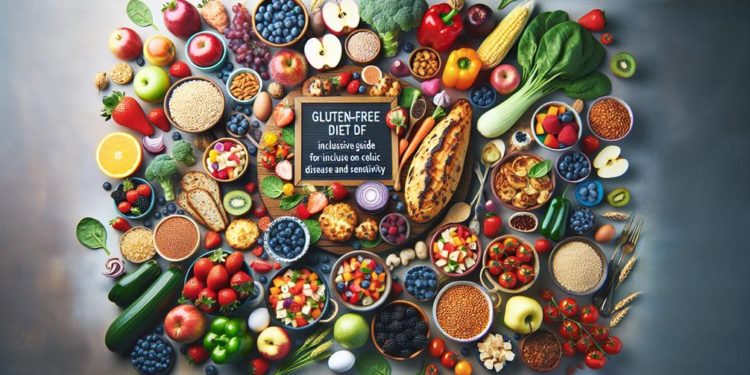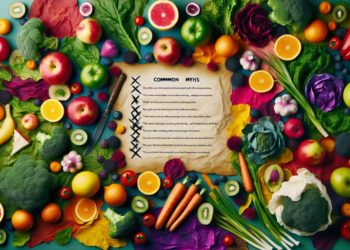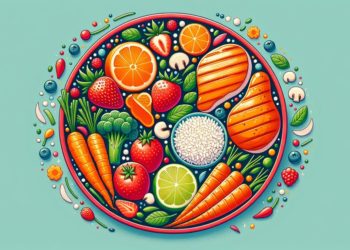They say, "You are what you eat." And when it comes to celiac disease and gluten sensitivity, what you eat becomes even more crucial. Living with these conditions can be challenging, but fear not, for this guide is here to shed light on the gluten-free diet. Whether you have been recently diagnosed or are simply curious about the subject, this discussion will provide you with the knowledge you need to navigate the world of gluten-free living. So, sit tight and prepare to discover the secrets behind a gluten-free lifestyle that is both satisfying and nourishing.
Key Takeaways
- Celiac disease is an autoimmune disorder triggered by the ingestion of gluten, while gluten sensitivity is a non-celiac condition where individuals experience adverse reactions to gluten.
- Common sources of gluten include wheat, barley, rye, and their derivatives, and it is important to read food labels carefully to identify hidden sources of gluten.
- Following a gluten-free diet is essential for individuals with celiac disease to prevent long-term complications and can alleviate symptoms and improve overall health for those with gluten sensitivity.
- Maintaining a gluten-free diet requires careful planning and label reading, and dining out, social situations, and traveling can present challenges in finding gluten-free options.
Understanding Celiac Disease and Gluten Sensitivity
Understanding Celiac Disease and Gluten Sensitivity is crucial for individuals who need to follow a gluten-free diet. Celiac disease is an autoimmune disorder that occurs when the body mistakenly attacks the lining of the small intestine in response to gluten, a protein found in wheat, barley, and rye. This immune reaction causes inflammation and damages the small intestine, leading to a range of symptoms. The exact cause of celiac disease is not yet fully understood, but it is believed to involve a combination of genetic and environmental factors.
On the other hand, gluten sensitivity, also known as non-celiac gluten sensitivity, is a condition where individuals experience symptoms similar to those with celiac disease but do not have the same intestinal damage or autoimmune response. The symptoms of gluten sensitivity can vary widely and may include bloating, abdominal pain, diarrhea, constipation, fatigue, and headaches. Unlike celiac disease, gluten sensitivity does not involve an immune response and does not cause long-term damage to the small intestine.
It is important to note that the symptoms of celiac disease and gluten sensitivity can overlap, making it challenging to differentiate between the two. If you suspect that you may have either condition, it is recommended to consult with a healthcare professional for a proper diagnosis. Understanding the causes of celiac disease and recognizing the symptoms of gluten sensitivity can help individuals make informed decisions about their diet and manage their condition effectively.
The Importance of a Gluten-Free Diet
Following a gluten-free diet is essential for individuals with celiac disease or gluten sensitivity to manage their condition effectively and maintain optimal health. The benefits of a gluten-free diet for these individuals are numerous. Firstly, it helps to alleviate symptoms such as abdominal pain, bloating, and diarrhea. By eliminating gluten, the body can heal and the intestinal lining can repair itself, leading to improved digestion and nutrient absorption. Additionally, a gluten-free diet reduces the risk of complications associated with celiac disease, such as malnutrition, osteoporosis, and certain types of cancer.
However, transitioning to a gluten-free lifestyle can present certain challenges. It requires careful attention to food labels and ingredients, as gluten can be found in unexpected places such as sauces, dressings, and even medications. It may also require adjustments in meal planning and dining out, as cross-contamination can occur in shared kitchens or restaurants that do not offer gluten-free options. Adhering to a gluten-free diet may also limit food choices and require additional time for meal preparation.
Despite these challenges, the benefits of a gluten-free diet far outweigh the difficulties. By following a strict gluten-free lifestyle, individuals with celiac disease or gluten sensitivity can effectively manage their condition, alleviate symptoms, and prevent long-term complications. It is important to consult with a healthcare professional or registered dietitian to ensure a well-balanced gluten-free diet that meets nutritional needs.
Foods to Avoid on a Gluten-Free Diet
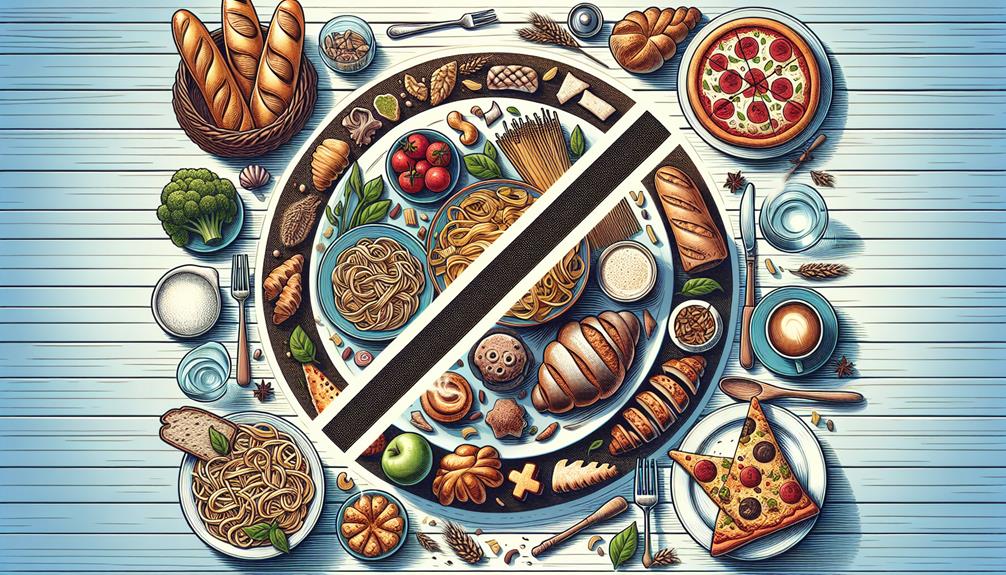
What are the key foods that should be avoided when following a gluten-free diet? When it comes to a gluten-free diet, it's important to be aware of the foods that can potentially contain gluten or have a high risk of cross-contamination. Gluten is a protein found in wheat, barley, and rye, and it can be hidden in many unexpected places. To help you navigate your gluten-free journey, here is a table outlining some common foods to avoid and their hidden sources of gluten:
| Foods to Avoid | Hidden Sources of Gluten |
|---|---|
| Bread and other baked goods | Wheat flour, barley malt, rye flour |
| Pasta and noodles | Wheat-based pasta, semolina, durum |
| Cereal and granola | Barley, malt extract, wheat bran |
| Beer and malt beverages | Barley, malted barley, malt syrup |
| Sauces and condiments | Soy sauce (unless labeled gluten-free), malt vinegar, salad dressings with wheat ingredients |
| Processed meats | Deli meats with fillers containing gluten, sausages with wheat-based fillers |
| Snacks and desserts | Cookies, cakes, and pastries made with wheat flour, breadcrumbs in coatings |
| Soups and broths | Wheat-based thickeners, barley |
| Dairy substitutes | Some brands of non-dairy milk may contain gluten as a thickening agent |
It's important to read food labels carefully, as gluten can be hidden in ingredients such as modified food starch, hydrolyzed vegetable protein, and maltodextrin. Additionally, be cautious of cross-contamination risks in shared kitchen utensils, cutting boards, and toasters. By being mindful of these potential sources of gluten, you can successfully follow a gluten-free diet and avoid any adverse effects.
Gluten-Free Alternatives and Substitutes
To successfully follow a gluten-free diet, it is important to explore the wide range of gluten-free alternatives and substitutes available. Whether you have celiac disease or gluten sensitivity, finding suitable replacements for gluten-containing foods is essential for maintaining a healthy and enjoyable diet.
When it comes to gluten-free baking, there are numerous options to choose from. Instead of using wheat flour, you can try using alternative flours such as rice flour, almond flour, or coconut flour. These flours can be used to make a variety of delicious gluten-free treats, including cookies, cakes, and bread.
Additionally, gluten-free restaurants have become more prevalent in recent years, making it easier than ever to dine out while following a gluten-free diet. These restaurants offer menus that cater specifically to those with gluten intolerance, providing a wide selection of dishes that are safe to consume. It's important to do your research and find gluten-free restaurants in your area to ensure a safe and enjoyable dining experience.
Tips for Successfully Transitioning to a Gluten-Free Lifestyle
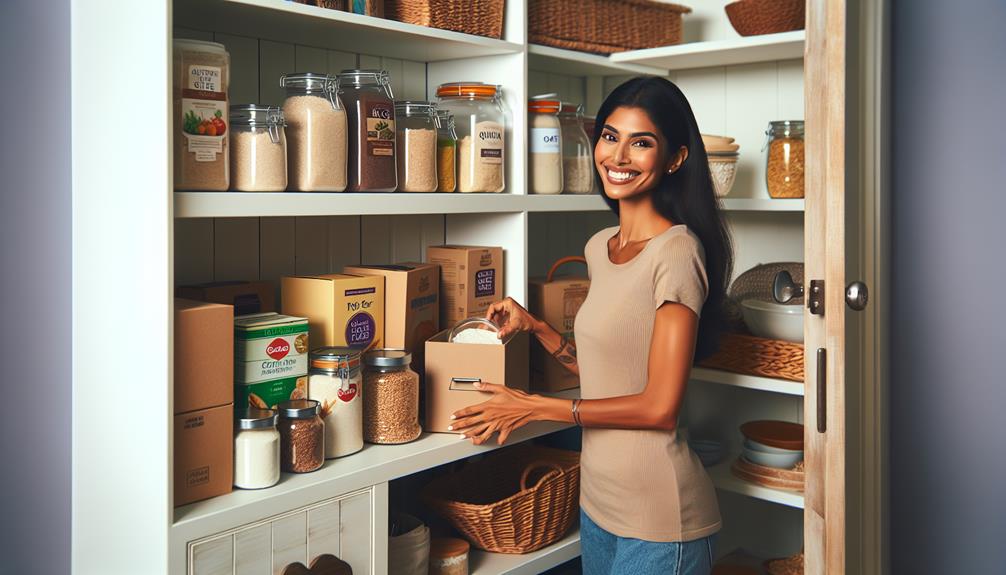
When embarking on a gluten-free lifestyle, it is important to equip yourself with practical tips for successfully navigating this dietary change. Transitioning to a gluten-free lifestyle can present challenges, but with the right strategies, you can adapt smoothly and maintain a fulfilling social life. Here are four tips to help you transition successfully:
- Educate yourself: Learn about gluten-containing foods and ingredients, as well as safe alternatives. Familiarize yourself with food labels and look out for hidden sources of gluten. Knowledge is key to making informed choices.
- Plan ahead: Prepare meals and snacks in advance to ensure you always have gluten-free options available. When dining out, research restaurants that offer gluten-free menus or call ahead to discuss your dietary needs. Being prepared will help you navigate various situations with ease.
- Seek support: Reach out to support groups or online communities for guidance and encouragement. Connecting with others who understand the challenges of a gluten-free lifestyle can provide valuable insights and tips.
- Communicate effectively: When attending social events or dining with friends and family, communicate your dietary needs in a clear and confident manner. Offer to bring a gluten-free dish to share, or suggest restaurants that cater to gluten-free diets. Open communication can help minimize misunderstandings and ensure everyone is supportive of your dietary choices.
Frequently Asked Questions
Are All Gluten-Free Products Safe for People With Celiac Disease and Gluten Sensitivity?
Not all gluten-free products are safe for people with celiac disease and gluten sensitivity. Cross contamination risks can occur during manufacturing, so it's important to read labels carefully to ensure the product is truly gluten-free.
Can Celiac Disease and Gluten Sensitivity Be Cured or Outgrown?
You may be curious if celiac disease and gluten sensitivity can be cured or outgrown. Unfortunately, there is no cure for celiac disease, but a gluten-free diet can effectively manage it. As for gluten sensitivity, the long-term effects are still being studied.
Is It Necessary to Eliminate All Sources of Gluten, Including Trace Amounts?
It is necessary to eliminate all sources of gluten, including trace amounts, in order to prevent cross-contamination and ensure a safe gluten-free diet. Dining out on a gluten-free diet can be challenging but with proper education and communication, it is possible to navigate restaurant menus.
How Can I Make Sure I Am Getting All the Necessary Nutrients on a Gluten-Free Diet?
To ensure you're getting all the necessary nutrients on a gluten-free diet, focus on eating a variety of whole foods like fruits, vegetables, lean proteins, and gluten-free grains. Supplements may be necessary to fill any nutritional gaps.
Are There Any Hidden Sources of Gluten That I Should Be Aware of When Following a Gluten-Free Diet?
When following a gluten-free diet, it's vital to be aware of hidden sources of gluten. From sauces to seasonings, check labels and ask questions to ensure you stay gluten-free. Here are some helpful gluten-free diet tips.
Conclusion
So there you have it, folks! A gluten-free diet may seem daunting at first, but with the right knowledge and substitutes, it can be a piece of cake – or should I say, a gluten-free cake? Don't let celiac disease or gluten sensitivity cramp your style. Embrace this lifestyle change and explore the world of gluten-free alternatives. Who knows, you might just discover a new favorite dish! So go ahead and say goodbye to gluten, and hello to a healthier, tastier you.


